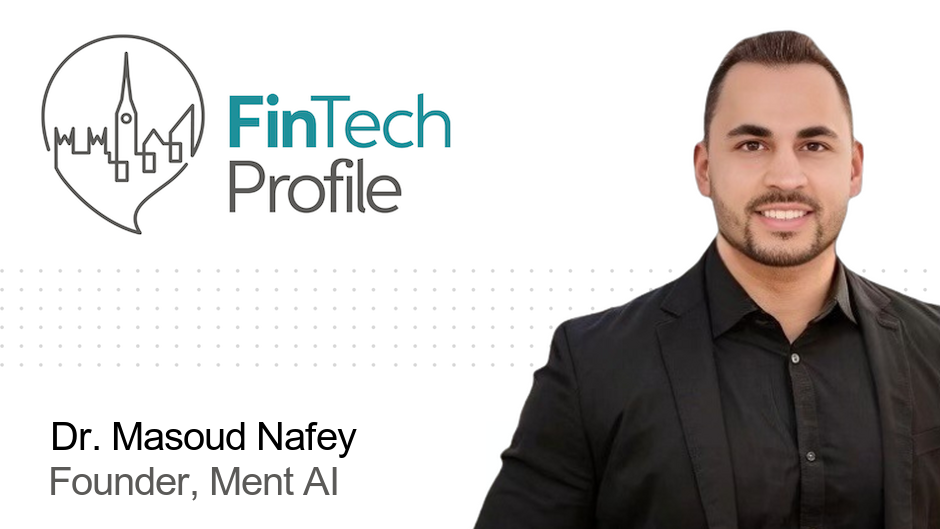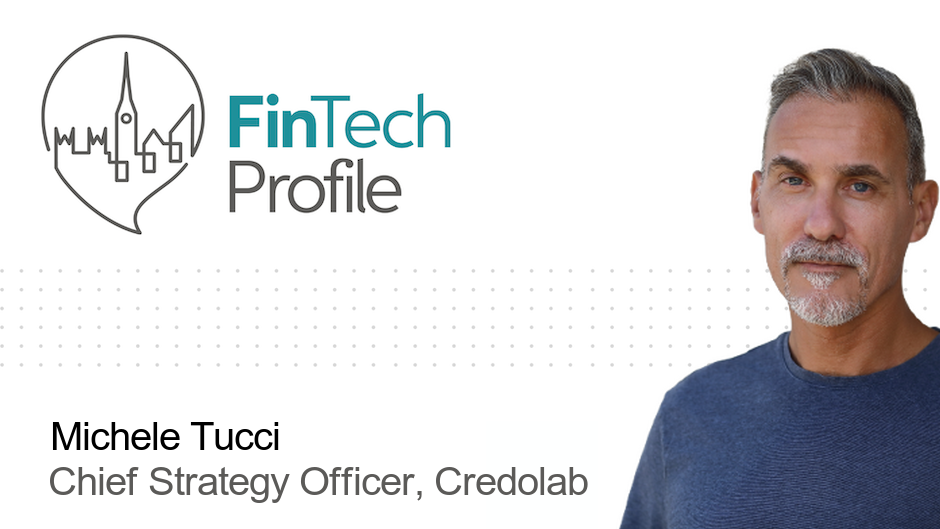Eric Zie, Founder & CEO, GoCodeGreen

Today’s Weekend Edition features Eric Zie, the Founder and CEO of GoCodeGreen | B Corp™. GoCodeGreen is a world-leading climate tech company focused on helping decarbonise the digital (and FinTech!) world.
Over to you Eric:
Who are you and what’s your background?
My name is Eric, and I’m a career technologist, having spent 30 years designing, architecting, building, and operating software solutions. I’ve worked mostly in Europe and Asia Pacific, between large corporations and new businesses. Over the past decade, I have focused on innovation work, winning a Google Brain award for the use of AI, intelligent automation, and, most recently, designing climate solutions. My first start-up stint was in the early days of the formation of the Silicon Round in London in new digital media.
I have a Master’s from the London School of Economics and a first degree in Socio-economic Geography. Aside from founding and building my ClimateTech business, I am now a Visiting Professor in Digital and ICT Sustainability at the University of Suffolk: Aspiring Talent, the county I moved to in the UK after leaving London 10 years ago. I am currently Computing’s Digital Ambassador of the Year for my work in decarbonising digital, vice chair of TechUK’s Climate Council, an Earthshot Prize nominee in the Fix Our Climate category, and a World Green Technology Leader. I am also the author of the guide book “Decarbonise Digital: Facts, Methods, Action”.
What is your job title and what are your general responsibilities?
I am the founder and CEO of GoCodeGreen. Aside from building the business and being heavily involved in developing our client and partner relationships, I am responsible for designing and constructing our product solutions.
As a career techie, I consider myself to be the chief product owner and strategist, ensuring my hands-on involvement in our portfolio of measurement and diagnostic solutions.
I love working with clients who are starting their journeys to decarbonise digital and the opportunities it brings as they realise that doing good, differentiating their digital solutions to their customers and markets, developing their sustainable IT culture in their businesses, and reducing operational costs can all be achieved simultaneously when they have the insights, data, and actions that we deliver to them through our range of solutions.
Can you give us an overview of your business?
Our business and our mission are inseparable. We want to use technology to help technology become greener. Our first-in-the-world platform can help measure and identify actions to lower the energy demands of software on the technology value chain and reduce the creation of millions of tonnes of CO2e. By making more efficient use of ICT, we not only lower energy consumption but also extend the lifespan of the embodied carbon in all devices and infrastructure components needed to run software.
GoCodeGreen can help any digital business start their journey by measuring and baselining the carbon impact of their software and ICT, as well as helping them build actionable plans to improve. Our platform can support any organisation wanting to drive a sustainable IT agenda to support their net zero commitments.
We are achieving real results already. GoCodeGreen has already worked with over 50 companies, identifying carbon reduction opportunities ranging from 26% to 53%. The journey that GoCodeGreen is on is super exciting and full of opportunity to help organisations as they begin to really tackle their use of technology and the impact it has on the environment.
Tell us how you are funded?
We are self-funded … for now. I’ve been 100% focused on keeping our solution independent and firmly aligned to the original business mission, with no distractions. We have now reached a point where I think different options and considerations for scaling will inevitably be required if we are to maximise our impact and support as many clients in their digital decarbonisation as possible.
What’s the origin story? Why did you start the company? To solve what problems?
My epiphany moment came three years ago.
After a career spent building software solutions, I came to realise, ‘I don’t know what I’m doing’. Not from my ability to make great software products that were robust, functionally rich, and leveraging advancements in technology, but from a sustainability perspective.
I had no idea whether the choices I was making were environmentally good or bad, and I had no idea of the overall impact my digital solutions were having on the planet and climate. At that moment, I resolved to find answers to the questions swirling in my mind, and I embarked on a fruitless search that ultimately led me to a turning point.
I decided to start an experiment using all the experience gained over my 30-year career and my recent work in innovation, data, and AI. The experiment was called GoCodeGreen | B Corp™.
Who are your target customers? What’s your revenue model?
Our potential customer base includes any organisation that is dependent on technology, delivers their products and services to their customers digitally, and has made a net-zero commitment. The industry sector, or geography, does not constrain us, offering us immense potential for impact and growth. We base our engagement and revenue model on the number of assessments we conduct for the use of ICT and software.
These assessments can be manual-based (like a typical ESG-based assessment at the organisation level) or via an API when clients are ‘data-ready’. We can implement our delivery and engagement model directly with clients or through our strategic partnerships.
The most important thing for me is scale and impact. Our partnerships with many of the world’s leading consultancies, system integrators, and technology companies give us the collective ability to provide consistency in measurement for clients and maximise our joint impact to reduce environmental impact.
If you had a magic wand, what one thing would you change in the banking and/or FinTech sector?
I’d love to see all senior technology leaders and decision-makers suddenly have enough knowledge and understanding of the need and opportunity to maximise impact by decarbonising their technology and digital solutions.
Currently, our priorities and investment decisions remain outdated, failing to reflect the true urgency of climate change impact. I have a very strong belief that IT leaders, who are generally fantastic problem solvers and innovators, will embrace this opportunity to take action and create a foundation for sustainable digital growth.
What is your message for the larger players in the Financial Services marketplace?
Trust and Act. The whole idea of sustainable IT and digital decarbonisation is new, but one that you will need to embrace and lead. Please don’t wait for data perfection and value solutions that are pushing the boundaries of change. Your legacy should be a combination of delivering customer value, innovation, operational excellence, robust, secure services, AND pioneering and leading your organisation’s response to climate change. We can assist you in accelerating your impact.
Where do you get your Financial Services/FinTech industry news from?
I generally scout LinkedIn FinTech groups and my network for insights and things that interest them. My regular headline scans are across the likes of Medium, Fast Company, McKinsey & Company, and similar. I work with a lot of consulting and technology partners, so much of what I gain is from conversation and observing the pressure points and opportunities that these organisations focus on tackling or exploiting.
Can you list 3 people you rate from the FinTech and/or Financial Services sector that we should be following on LinkedIn, and why?
My honest answer is that I’m not an avid follower of anyone. I have a trait of being highly critical of everything I hear. I prefer in-the-moment observations across lots of different people with varying perspectives. I have also discovered that academics and researchers, who don’t often post on social media and LI, are full of the most interesting information and insights. I spend my time trying to understand where the latest research topics and funding are going as my way of understanding possibilities and where I should be innovating next.
What FinTech services (and/or apps) do you personally use?
I don’t. Per above. But I love how Monzo keep adding value add services seamlessly to their core product, and without any customer friction. The approach to just giving stuff to you that you’ll like and help you better manage your money is great. For any FinTech service, the balancing act between new features, service and relevance and ability to lower customer friction on an ongoing basis are the things I’m interested in observing. I’d love to measure their digital impact 🙂
What’s the best new FinTech product or service you’ve seen recently?
I still love what Emma Kisby and the team at Cogo are doing. They’ve changed the way financial services think about their customers and the impact of their financial transactions on the environment. I also think their approach to tech integration across so many banks globally is brilliant. www.Cogo.co
I’d love to measure their own digital impact 🙂 Generally I think the FinTech sector is really challenging, with process and solution dilution as the volume of entrants grows. I think that AI will be leveraged to create enhancements and new offerings and I’m super keen to see how FinTechs better integrate with ClimateTech solutions.
Finally, let’s talk predictions. What trends do you think are going to define the next few years in the FinTech sector?
As you might expect, I will approach this question from a very specific perspective.
The increasing use of AI, specifically GenAI and LLMs, across the FinTech solution base will only grow over the next few years, as will the uptake of FinTech services to further digitise the financial services sector. This places a real responsibility on the Fintech sector to consider how best it can take action to reduce its own digital carbon emissions and create a sustainable foundation for growth. Increased environmental regulations and reporting requirements on financial services and end customers will also impact FinTechs, as they will be viewed as contributors to their clients’ Scope 3 emissions.
Consequently, the demand for transparency regarding their own emissions is likely to become a highly debated topic in the near future. I believe the FinTech sector has a unique opportunity to lead in digital decarbonisation; it is innovative and fast to respond to customer needs and can pioneer in making good ‘green’ choices on how to best design, build, and operate their solutions.
This all starts with consistent, standards-based measurements covering their entire digital operations. The best bit is that we can help them to not only decarbonise their own digital-first businesses but also help differentiate their solutions as they take action to decarbonise.
Thank you very much for taking the time Eric.
Eric is on LinkedIn here at Eric Zie. Read more about GoCodeGreen | B Corp™ here at http://www.gocodegreen.com.




